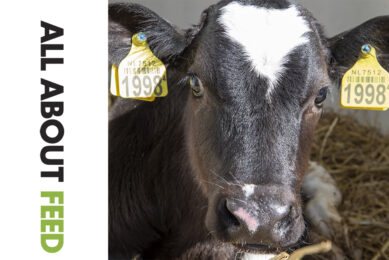COLUMN: Unfair war on grain use in petfoods

People are entitled to have any view regarding canine nutrition and put it into practice, provided that no harm is done. In the US pet market, grain-free food is a very popular trend at the moment. Well-formulated, grain-free foods provide good nutrition for dogs. However, it is reprehensible to reject grains using false arguments.
False arguments
The owners’ interest in natural feeding of dogs has inspired manufacturers to develop compatible foods. During recent years, sales in the US of natural petfoods have outpaced that of petfoods overall. At present, natural is the most used claim. It is the buzzword attracting the petfood buyer. In various concepts of natural there is no place for cultivated grains, particularly wheat and corn. The anti-grains conception is generally backed by six false arguments.
- Dogs are carnivores not designed to consume and utilise grains.
- Grains are not part of the natural canine diet.
- Dogs cannot digest starch in grains.
- Dogs have no nutritional need for carbohydrates, including starch.
- Grains serve as filler.
- Grains cause diseases such as food allergy, obesity, diabetes, osteoarthritis and cancer.

Evidence-based counter
arguments
All six arguments can be disproved.
- Domesticated dogs are not strict carnivores. They willingly accept grain-containing foods and thrive on them.
- From a nutritionist’s point of view, any definition of the natural canine diet is irrelevant. Dogs should be fed on diets supplying adequate amounts of nutrients that are readily available and present in a palatable mixture of safe ingredients. In such diets grains can be present or absent.
- The starch constituent of cooked grains is digested and absorbed efficiently by the dog’s small intestine.
- Healthy dogs can be fed adequately on diets without digestible carbohydrates, but these diets must contain more protein than the recommended allowance. This statement does not exclude that grain-containing, high-starch diets also provide adequate nutrition.
- Grains are foodstuffs: they provide starch as energy source and protein-sparing nutrient, and they also supply protein.
- Dietary grains do not impose extra risk of canine diseases. Wheat induces no more adverse reactions than beef does. Gluten in wheat or barley only causes intestinal disorders in an extremely small, specific group of dogs. Corn and rice hardly ever cause food allergy. Calorie intake higher than expenditure causes obesity, irrespective of diet composition. When fed ad libitum, dogs gain less body fat when dietary animal fat is replaced by an isocaloric amount of grain starch. Osteoarthritis development in dogs correlates with obesity rather than diet type, which probably holds for cancer also. Diet composition is not a risk factor for type I diabetes mellitus in dogs.
Over-rated counter
argument
It could be argued that grains form a discriminating part of the natural canine diet. Recent research indicates that the transformation of meat-eating wolves into dogs was accompanied by genetic mutations promoting starch digestion. Adaptation to a starch-rich diet would thus separate domesticated dogs from wolves. However, this reasoning may not be valid and specific. Data that wolves indeed display poor digestion of ingested, cooked starch are lacking. Cats are generally considered more carnivorous than dogs. Nevertheless, research data show that ileal digestion of cooked corn starch in domesticated cats is adequate, albeit lower than in dogs.
Degrees of freedom
Dog food production conforming the nutritionist’s approach allows a great degree of freedom. Ideally, the food should sustain a healthy and long life in the light of currently available scientific data. The use of grains as ingredients fits well in the production of good nutrition for dogs, but it is not a necessity.
[Source: AllAboutFeed magazine Vol 22 nr 5, 2014)











